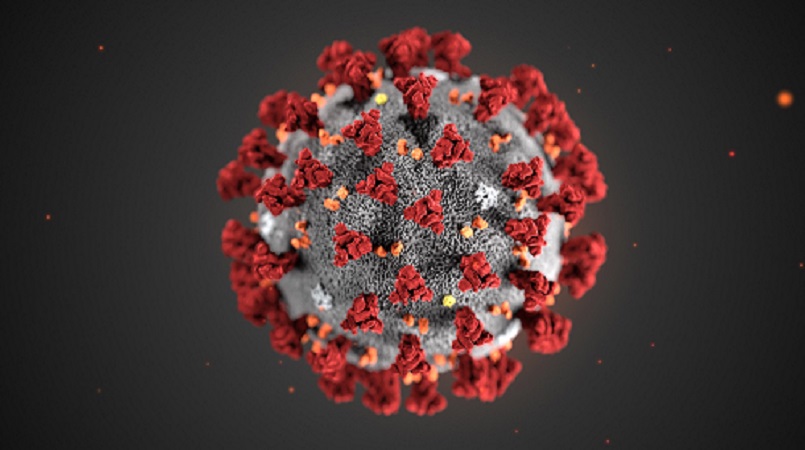
Researchers working on Long Covid have revealed that an estimated 300,000 people could currently be suffering from the condition, raising concerns that the debilitating disease is going to have a long-term impact on the economy and healthcare system.
Victoria University epidemiologist Dr Mona Jeffreys has recently completed a nationwide study of 990 people who caught Covid-19 before December 2021.
But Jefferys says more research is needed, particularly into the impacts on Pacific people and how it affects those with additional challenges such as obesity or a history of heart disease.
She would also like to see Long Covid recognised as a disability, enabling people to access disability allowances and support services reports PMN News.
“I talked to one mum whose son is 11,” she says.
“He used to play football every day after school and she says now she carries him to the toilet because he can’t walk.”
What is Long Covid and its unseen side-effects?
Immunologist Dr Dianne Sika-Paotonu says Long Covid can be absolutely “devastating” for people.
“Long Covid is defined as signs and symptoms consistent with Covid-19, that develop during or after an infection, continue for more than 12 weeks and are not explained by an alternative diagnosis,” says Sika-Paotonu.
Symptoms include fatigue, shortness of breath, anxiety, feeling dizzy and chronic pain (muscles, joints or headache). There are also cardiac or heart symptoms, neurological symptoms like brain fog and loss of concentration, ears, nose, throat symptoms, and respiratory symptoms.
Jeffreys says the overall impact is “massive”, as more people she interviewed told her they are suffering from anxiety and depression since catching Covid-19.
“Lots of real sadness in terms of people’s loss of identity,” she says.
“People talked about the change in identity, they lost the ability to be the person that they were, they couldn’t work, they couldn’t be the mum they wanted to be, couldn’t be the granny they wanted to be. They couldn’t contribute to their community as much as they wanted.”
And Jefferys says it’s still not clear how long it takes to overcome, with 20 percent of research participants having symptoms for three months or more, while some are still suffering since catching it in March, 2020.
“It seems really likely to me that once you have it then you’re probably going to live with it for a substantial amount of time,” she says.
Adding that there is also an unseen financial burden, given the condition is not currently recognised as a disability, and the need to see one’s GPs multiple times for diagnosis and ongoing treatment.
“There’s the direct medical cost in terms of getting care and there’s the cost of not working,” she says.
The study also found that there was insufficient knowledge about treatments for Long Covid.
The Pacific impact
In the study she led, Jeffreys found that Pacific people reported a lower risk of developing Long Covid, but she believes it’s due to participants misinterpreting the question, as research has also shown that people who were overweight or had heart disease before a Covid-19 diagnosis were more likely to have Long Covid symptoms.
She believes further Pacific-led research projects, which target hard-to-reach groups, like those under 40-year-olds could be beneficial as well as specialised wraparound services with Pacific public health navigators and coordinators.
How do you know you have Long Covid?
Sika-Paotonu says there’s still no formal diagnostic test for the long term illness yet.
“Diagnostic techniques are being developed and most of them involve the use of inflammatory bio markers and immune profiling technique”.
But Jeffreys points out that Long Covid resembles the symptoms of Myalgic encephalomyelitis/chronic fatigue syndrome (ME/CFS) which is a disabling and complex illness where people have overwhelming fatigue that is not improved by rest.
There are now two categories for Long Covid, the first is the ongoing symptomatic Covid, which is when people have Long Covid as a continuation of the original illness, and the other is post-Covid syndrome which is where Long Covid develops during or after a Covid infection.
“I guess what this is indicating is that we now know more about Long Covid but there’s more work that’s still needed.”
How to live with Long Covid
According to researchers, while there is no specific treatment there are ways of managing symptoms including occupational therapy, physiotherapy, nutrition, speech and language therapy, mental health and well-being support.
And there are on-going clinical trials for some therapeutics including anti-viral medication Paxlovid, antihistamines and dietary supplements.
Jeffreys says people with Long Covid should also consider utilising a method called pacing, which involves spending less physical and mental energy.
“It’s about understanding when you spend energy, if you have Long Covid then you’re going to pay for it the next day. So you need to cut down your energy expenditure to way below what you might think you’re able to do.”
